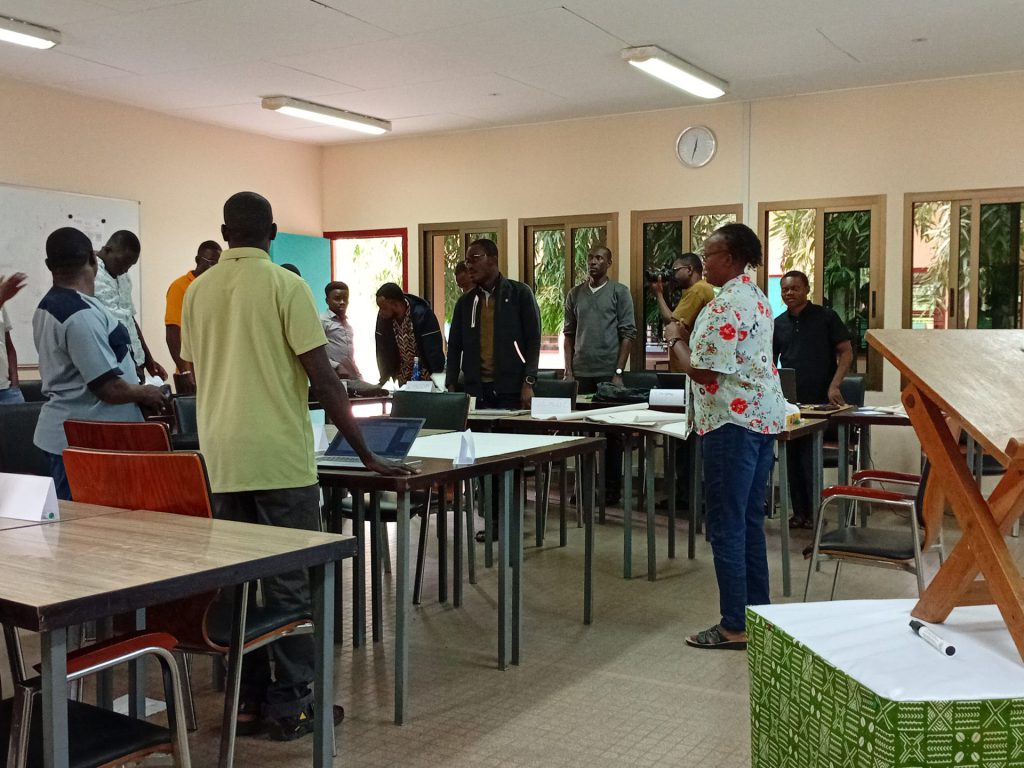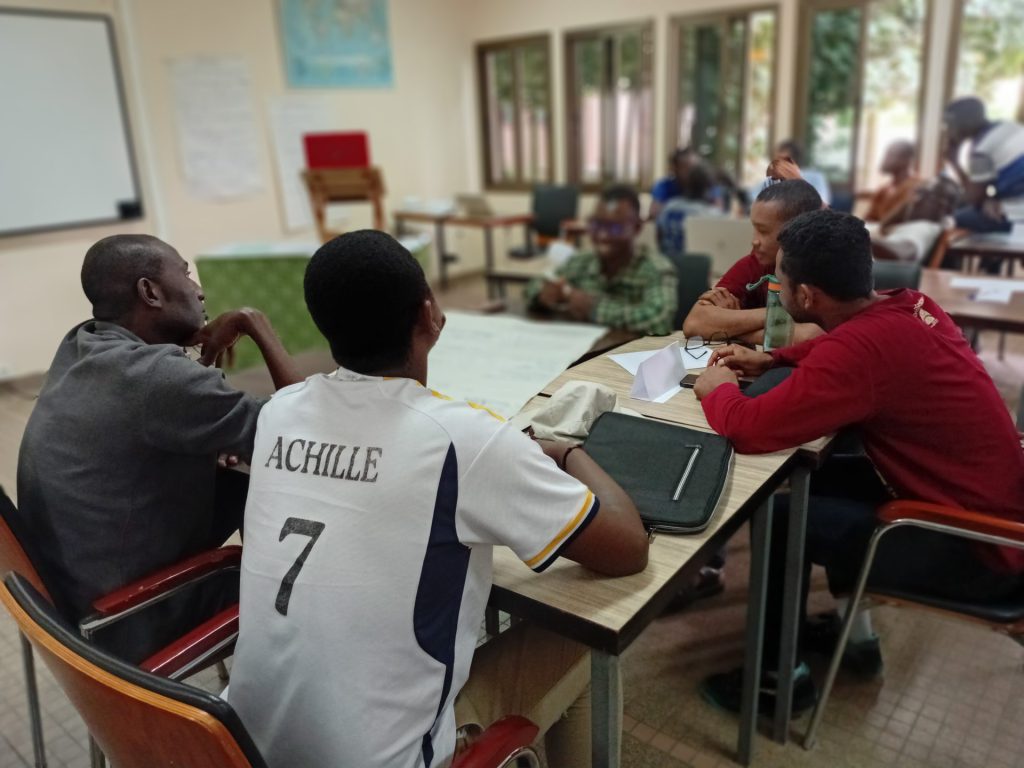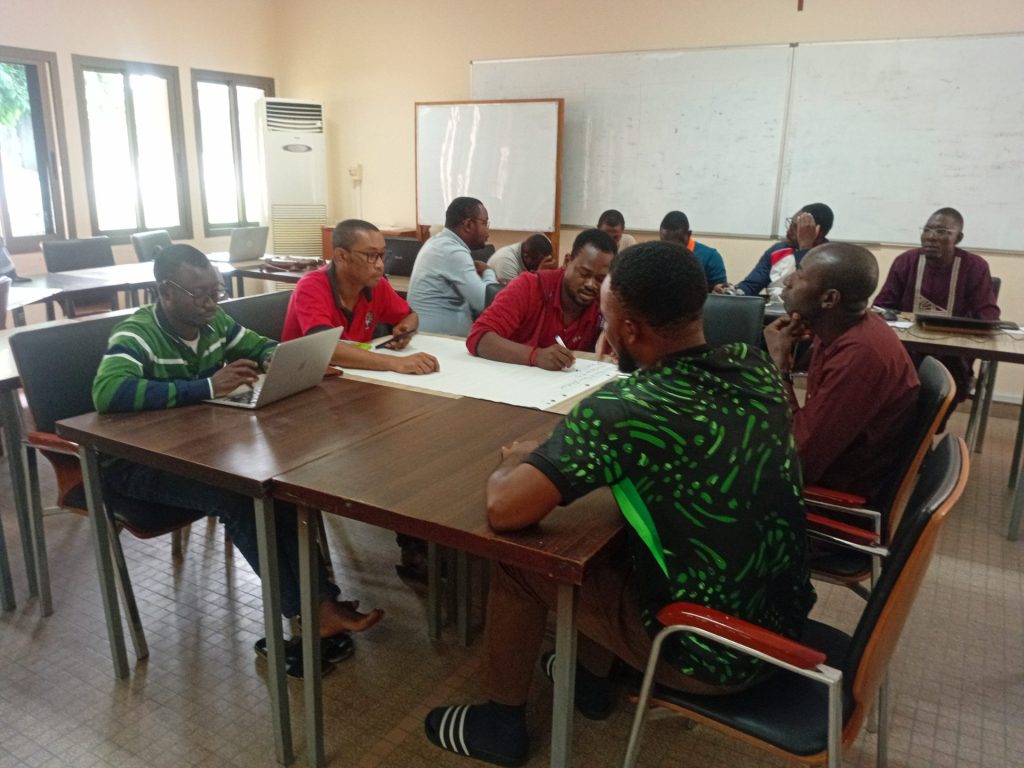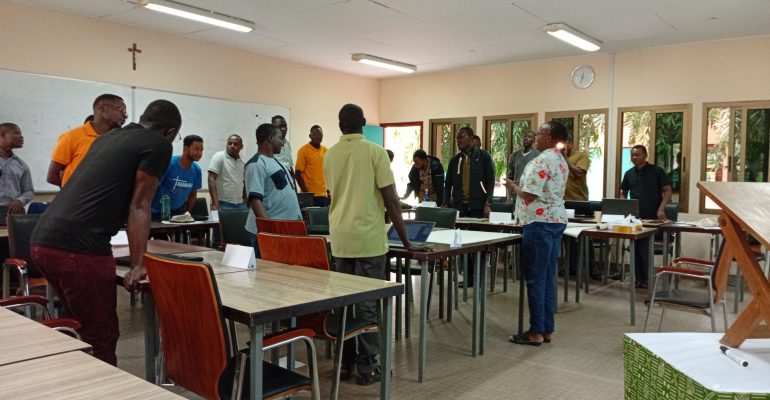At the end of a long but important Ignatian week (August 11–16, 2025) at the Institute of Theology of the Society of Jesus (ITCJ), focused on the AHAPPY Generation program developed by the African Jesuit AIDS Network (AJAN), I share with satisfaction the modest reflection that follows.

From the outset, we were introduced to AJAN as a structure contributing to the overall vision of JCAM (Jesuit Conference of Africa and Madagascar). Beyond the struggle against HIV and AIDS, AJAN has redefined itself by making the support of African youth development its priority. This commitment draws on its spiritual wealth rooted in the Jesuits’ long human tradition. Thus, self-knowledge, awareness of one’s environment, discernment, decision-making, and mentorship were, among others, the themes of discussion during the program.
Of these themes, I was particularly struck by the emphasis on building values and moral and human principles as a weapon and asset for responsible and fulfilled youth. The organizers stressed that life principles are solid foundations for responsible living because they are the rules and measures one sets for oneself to guide life. These principles help resist external pressures and bring a certain inner peace and serenity in a world overwhelmed by all kinds of ills. These principles are also grounded in self-awareness as a being loved and created by God, whose social contribution fulfills the very purpose of being created. Our contribution is the choice we make—the call we receive deep within our hearts to embrace a certain lifestyle or profession.

Beyond principles, the different videos and group work lightened the weight of the training and allowed us to reflect on certain social problems, their causes, and ways to resolve them. What struck me most from these discussions was realizing that solving the problems facing young people requires collaboration among many actors: the family, educators, public authorities, but especially myself as an individual. The facilitators emphasized each person’s personal contribution: What can you do, at your level, to impact the young people you encounter?
In my opinion, solving social problems such as drug abuse, sexual irresponsibility, and negative influences requires an integral and holistic approach. While at our level we can increase awareness campaigns and mentoring programs with the youth we meet, it is also important that more lobbying be done with public authorities so that greater and more meaningful decisions support personal initiatives. I emphasize that personal initiatives can also serve as the anchor point for public policy decisions.

In short, the “AHappy Generation” program (AHAPPY Generation) needs to be promoted in a world where most states have opted for more superficial solutions such as promoting condom use and teaching young people to rely more on contraceptives. The Society of Jesus, faithful to the Church, offers another option—the most humanizing, the most respectful of human dignity, and the most reassuring: the cultivation of values and life principles, mentorship and personal development, self-knowledge, and awareness of one’s environment.
This program must be promoted beyond our own formation houses to reach Jesuit universities and schools. Jesuit education as a whole would greatly benefit from it, especially the “Deans of Student Affairs” in our universities, who are responsible for the human formation of our students. I would recommend this program to our various universities and secondary schools within the conference.
May the AHAPPY Generation be proclaimed everywhere, and may we, young people, discover the beauty and joy of living beyond the pressures and campaigns that tend to strip us of our humanity.
By, Kouakou N. K. Jean-Serge, S.J.
Jesuit Trainee, ITCJ.


Comments are closed.